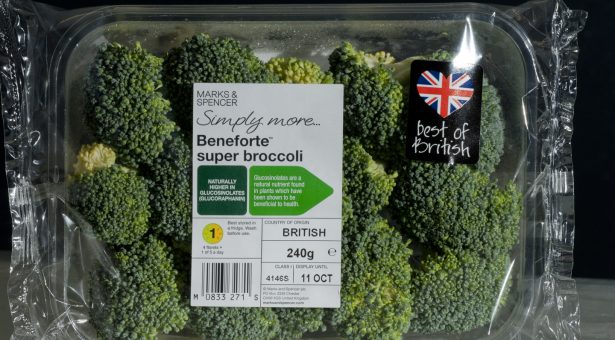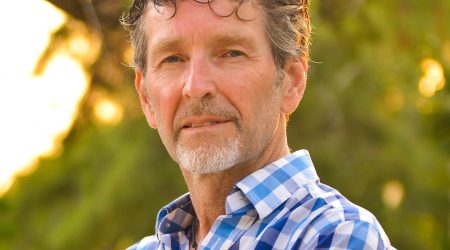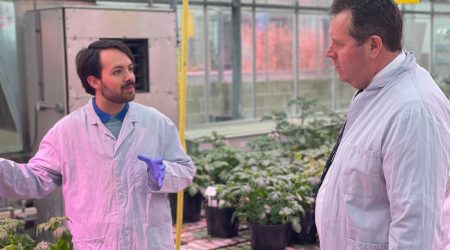From lab to classroom; an alumni career

Since the creation of our alumni network earlier this year, we have enjoyed hearing the stories of a huge variety of people who have passed from our institute over the years.
One of those people is Dr Kathy Faulkner, who has moved from the lab to the classroom.
This is Kathy’s story;
“I joined the John Innes Centre back in 1996 when I began studying for my PhD on anticarcinogenic glucosinolates in broccoli with Richard Mithen.
My career prior to starting my PhD had been a varied one. I had studied for my BSc Biochemistry degree at UCW Aberywstwyth between 1985-1988.
From there, I started my research career working for the Forensic Science Service (FSS) in Aldermaston, Berkshire, as a Scientific Officer. My job was to research DNA profiling techniques and how they were being used in forensic case work.
I left the FSS in 1993 to join Celltech Biologics PLC in Slough, Berkshire as a developmental research scientist. My role at Celltech was to improve the production process of various antibody drug products and to ensure better performance and efficacy when in clinical trails. From Celltech, I came to the John Innes Centre to resume my studies and begin my PhD.
On completion of my PhD, I worked alongside Ruth Maccormack in the Brassica Department as a Postdoctoral Scientist. The work Ruth, Richard and I did, in collaboration with the Institute of Food Research (now Quadram Biosciences), was responsible for producing the super Broccoli ´Beneforté, which contains high levels of glucoraphanin, a nutrient thought to reduce chronic disease risk. ‘Beneforte’ was recently named by the EDP as one of the top 10 breakthroughs made by John Innes Centre scientists.
One of my favourite memories from that time was when I overcooked some broccoli and absolutely stunk out the lab…
I stayed at the John Innes Centre until 2002, when I left to start a family. I loved my time there, especially in the Brassica department. It was such a warm friendly and supportive place to be.
While at the John Innes Centre, I took part in Teacher Science Network, where I had the opportunity to train school teachers in DNA extraction techniques. During the experience I felt I could encourage this link further so I invited Richard Mithen to present some short lectures on areas of his research programme to our higher ability students.
My new role is an extension of those experiences and I am now a part time Senior Science Technician for Neatherd High School in Dereham, Norfolk. Primarily, I provide scientific technical support to the teaching staff, developing and improving the experiments the students are doing.
I also lead a team of technicians, who are kept busy preparing 200 or more practical lessons a week. Alongside all of that, I also do practical demonstrations to the students and provide 1 to 1 support for students during lessons.
A couple of decades on, I’m still using the skills I learned during my PhD to this day.
At the John Innes Centre you are encouraged to present and explain your work to colleagues and to those out of your field of research, which is a skill I still use frequently to introduce new experiments for our students and changes to existing methods. I have also presented some of the results from my PhD to our students to help explain how science works in practice.
Encouragingly, over the years I have been doing this job, I have seen more female students enjoy science and want to study them further. We have many clubs in school run as extra-curricular activities and our STEM and science clubs are very popular. We run a science fair every year in school and the standard of projects they submit and present are fantastic.
Through my job I am able to encourage and support our students to enjoy science. I think they can see the enthusiasm that I have for research and I have lost count of the number of times, a student has asked me why I love science or about ‘super broccoli’.”



